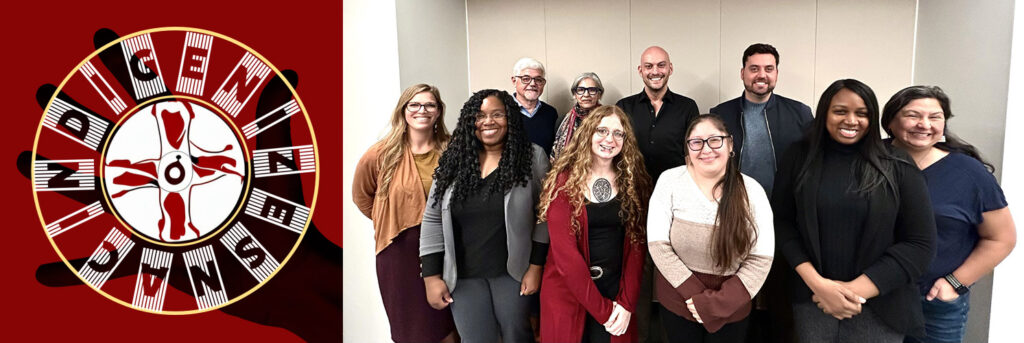About IndigenizeSNAC

Mission Statement
IndigenizeSNAC aims to improve search and access of archival records for Indigenous communities through the web platform Social Networks and Archival Contexts (SNAC). Through qualitative and Indigenous methodologies, we are exploring the potential for Indigenizing aggregation and linked data tools to better connect Indigenous researchers to community records.
Abstract
IndigenizeSNAC is funded by a grant from the Mellon Foundation to support the expansion of SNAC to better serve Indigenous community research needs. The project was originally funded in 2021 by the Laura Bush 21st Century Librarian program. SNAC is a platform with over 50 institutional partners working to aggregate distributed archival collections. For example, users can search use SNAC to locate aggregated archival records about Ernest Hemingway (427 entries). Rooted in colonial structures and power, archives with collections that may hold materials that Indigenous communities need to revitalize languages, reclaim land, and restore sovereignty are often difficult to locate online and may be difficult or impossible to access in person. For example, using SNAC to locate aggregated records about Jim Thorpe yields only 15 entries. IndigenizeSNAC supports a volunteer-based task force within the SNAC cooperative called the Indigenous Description Group. Volunteers meet monthly to discuss relevant work and may join subgroups centered on liaising with relevant organization, outreach, and technical aspects of SNAC. Building on previous Indigenous edit-a-thons and the Editorial Guide for Indigenous Entity Descriptions, we seek to build new models to harness current technological capacities, generate information equality, and empower Indigenous communities with tools to return knowledge to their home communities. This project utilizes collaborative methods to undertake that challenge, and provide a pathway for the wider archival and heritage community to follow suit by exploring the following research questions:
- How can aggregated discovery tools increase archival discovery for Native American and Indigenous community researchers (in culturally appropriate ways)?
- How can colonial archives and Indigenous communities work together to design and implement new tools while centering communities in the design and implementation process?
- What are the specific affordances of SNAC for locating collections dispersed in colonial archives across North America, and what technical infrastructures, cultural protocols, and educational initiatives are needed for this purpose?
- How can SNAC or other archival discovery tools facilitate repatriation and stewardship for Indigenous communities?
The Team
This project takes seriously the needs, opinions, and cultural worldviews of Indigenous users seeking to use their own historical knowledge for contemporary community work. Co-designing with our Indigenous Advisory Board, hiring community-based staff, and gaining community feedback throughout increases the diversity of users who can access archives in historically inaccessible institutions. Learn more about our team!
Privacy Policy
Please see our Privacy Policy for more information on our data collection methods.
Follow Us on Social Media
